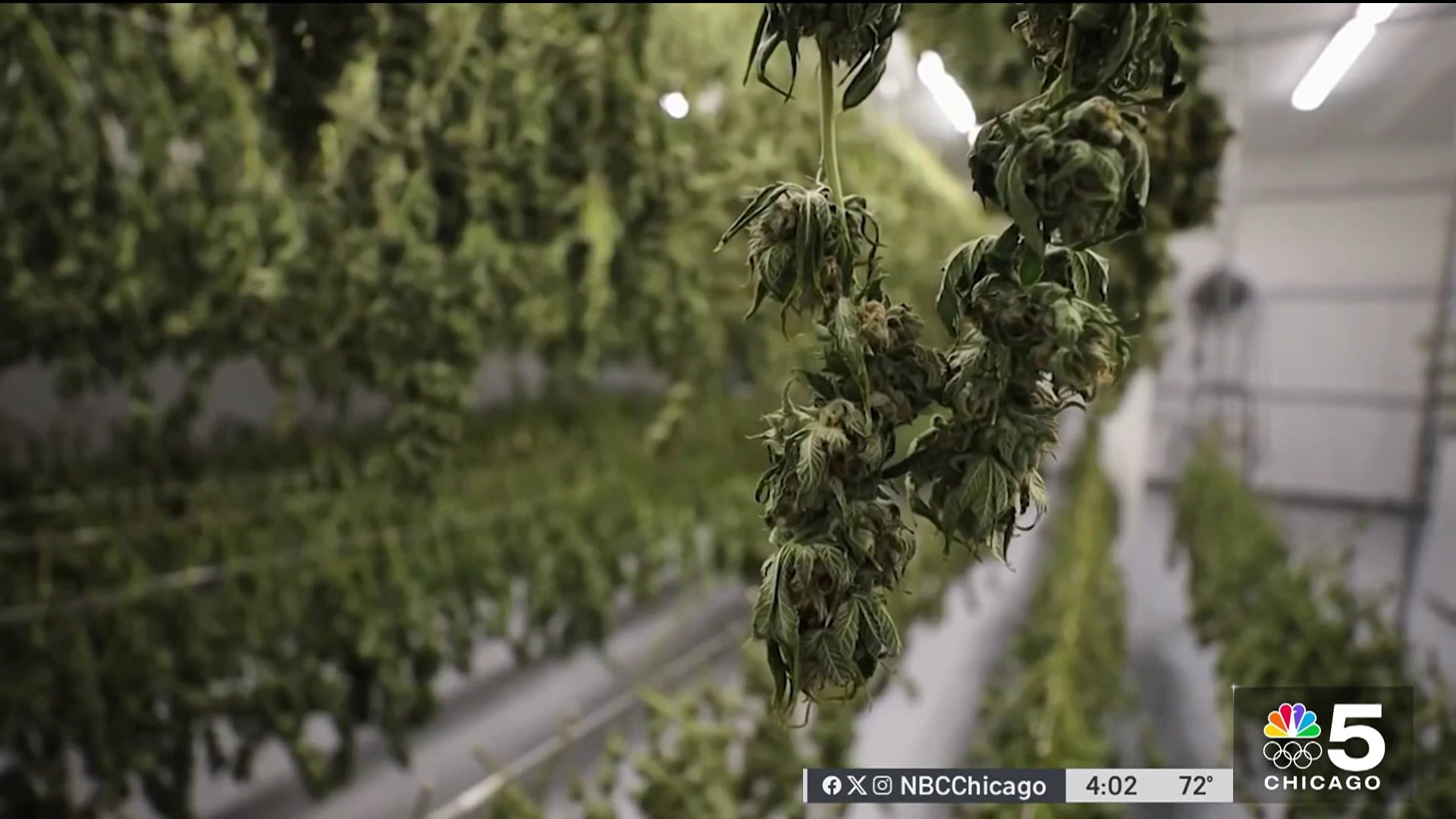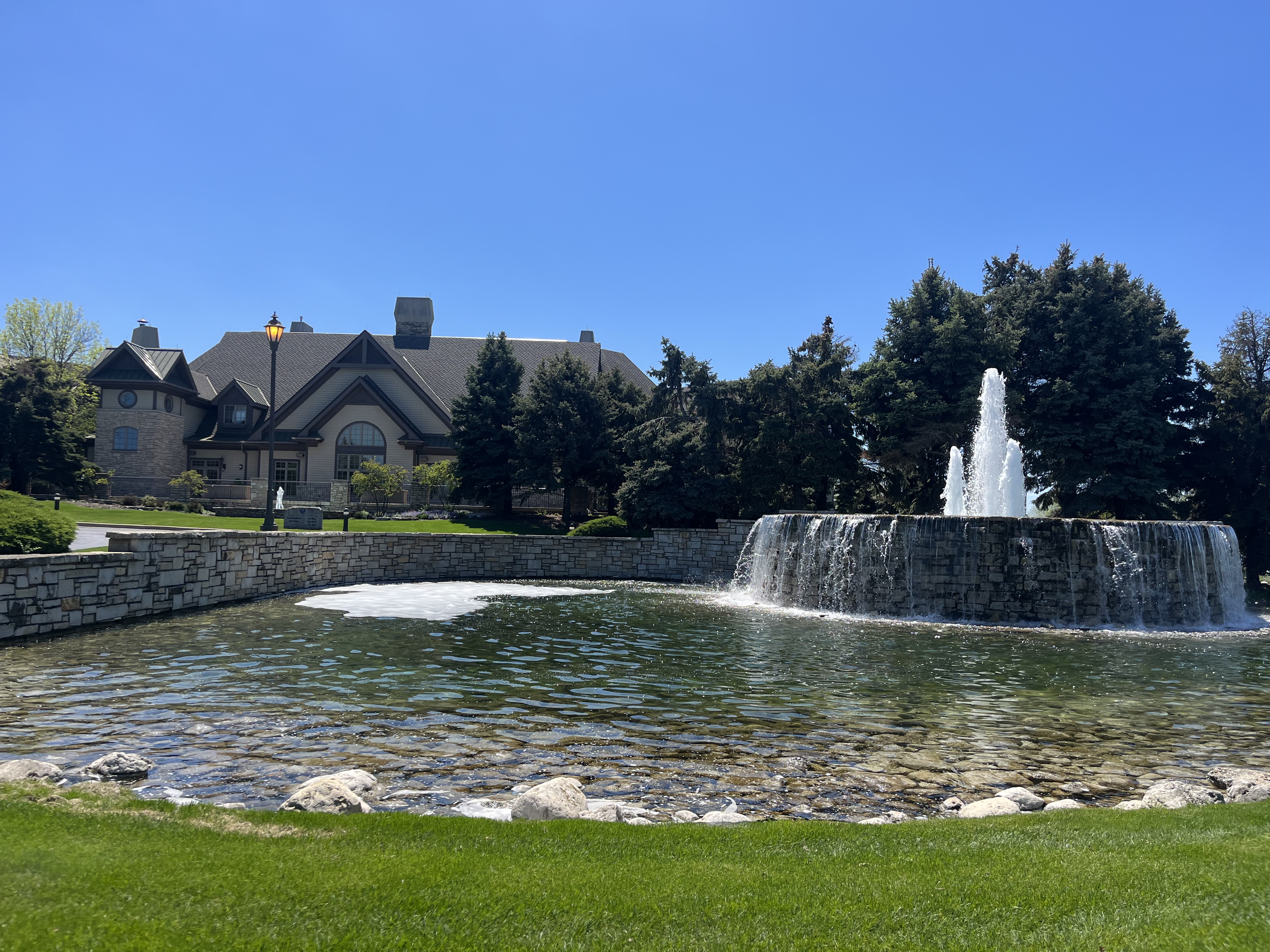Students and demonstrators at DePaul University have joined a nationwide movement to protest the Israel-Hamas war on campus.
A tent encampment was launched on the Lincoln Park campus Tuesday, consisting of a "diverse coalition of Palestinian students and their allies," according to a press release.
Similar to protesters on other campuses, demonstrators at DePaul are calling on the university to disinvest from companies that do business with Israel, while also calling on the university to call for a ceasefire.
In Chicago's Hyde Park neighborhood, protests have entered a second day at the University of Chicago, where a tent encampment remains despite threats of discipline from the university.
"We are outraged at the scale of violence," graduate student Safia Mahjebin told NBC Chicago. "We know that the university has stocks in weapon manufacturing. They have close relationships with people who have profited and made their fortunes out of war. For us that’s unacceptable."
Elsewhere in the country, protestors have clashed with police.
In New York City, protesters stormed and occupied a building on Columbia University's main campus overnight, with some students now facing expulsion from the university.
In Austin, Texas, dozens of protesters were arrested during a pro-Palestinian protest on the University of Texas campus on Monday.
Thus far, protests at University of Chicago have remained mostly peaceful with no arrests reported.
Ali Rezadoostdar is an associate professor and acting as a faculty liason.
Feeling out of the loop? We'll catch you up on the Chicago news you need to know. Sign up for the weekly> Chicago Catch-Up newsletter.
"In case there is any communication needed," Rezadoostdar said. "There have been some agitators passing through since yesterday, so making sure everything is peaceful and calm."
Students said they will remain on campus until the university meets their demands.
"We need to get the university’s investments out of Israel, outside of support for these weapons manufacturers, fossil fuel industries that are supporting Israeli colonization," undergraduate student Andrew Basta said.
A statement from University of Chicago president Paul Alivisatos to the university community, stating the school's adherence to "viewpoint neutrality rigorously" while adding that establishing an encampment "clearly violates policies against building structures on campus without prior approval and against overnight sleeping on campus."
Alivisatos also said that use of the word "encampment" implied more use of force than persuasion.
"I believe the protesters should also consider that an encampment, with all the etymological connections of the word to military origins, is a way of using force of a kind rather than reason to persuade others. For a short period of time, however, the impact of a modest encampment does not differ so much from a conventional rally or march," the statement read in part.
Alivisatos added that while students should expect to face disciplinary action for violating university policy, the encampment will be allowed to remain "for a short time."
"Given the importance of the expressive rights of our students, we may allow an encampment to remain for a short time despite the obvious violations of policy—but those violating university policy should expect to face disciplinary consequences," the statement said in part.
The statement also added that the encampment forces reallocation of police resources and said the university will act to preserve the functioning of the campus.
"The impact of an encampment depends on the degree to which it disrupts study, scholarship, and free movement around campus. To be clear, we will not tolerate violence or harassment directed at individuals or groups. And, disruption becomes greater the longer the encampment persists. With a 24-hour presence, day after day, we must for example divert police resources away from public safety for our campus and our community."
"If necessary, we will act to preserve the essential functioning of the campus against the accumulated effects of these disruptions. I ask the students who have established this encampment to instead embrace the multitude of other tools at their disposal. Seek to persuade others of your viewpoint with methods that do not violate policies or disrupt the functioning of the University and the safety of others," Alivisatos said at the conclusion of his statement.
A follow-up statement from the university's Dean of Students, Michele Rasmussen, added that individuals involved have been informed of potential disciplinary action.
"The individuals involved are on notice that the University is prepared to take further action in the event of continued violations of our time, place, and manner policies governing protests, threats to public safety, disruption of operations or academic activities, or destruction of property," Rasmussen said.
Rasmussen also stated that deans were in limited communication with protesters, advising them of university policy and other information.
"Deans-on-Call are in contact with students on the Quad. Their role is limited to advising protestors on University policy and procedures, and providing information and support as needed. Safety Ambassadors and officers with the University of Chicago Police Department (UCPD) also are present and available to uphold public safety," Rasmussen's statement said.
As for DePaul University, a statement from the university said in part that while several university policies were being violated by the presence of the encampments, the university was inviting individuals who are protesting to have a discussion how to peacefully express themselves.
"While tents and unpermitted structures on DePaul’s property violate a variety of university policies, we invite the members of our university community who are protesting to discuss with us how to peacefully express themselves. Our goal is to identify a path forward that allows our community to make their voices heard, while also respecting the rights of their fellow students to continue active engagement in their education and staying in compliance with the law and university policy," the statement read in part.
The university added that they hope to establish a dialogue with protesters while ensuring the safety of all community members.
"We hope to establish a dialogue with the DePaul community members who are leading the protest. We again want to note that we have a team of senior leaders, staff and faculty on campus who are here to engage with those protesting, communicating limits within which the university will permit their efforts and to work toward creative solutions whereby their voices can be heard. We remain hopeful that we can agree to these boundaries — within the policies of the university as well as the state and local ordinances — so that we can support the voices of those who are protesting."
"While it is our fervent desire to promote open dialogue in a spirit of peace, we also must protect the safety of our campus community. Violence, harassment, or intimidation as well as actions that interfere with university operations, damage property, or are disruptive to our neighbors — including but not limited to amplified sound — will lead to immediate disciplinary actions, such as suspension or expulsion, and criminal sanctions. Please remember that any complaints made directly to the Chicago Police Department by the neighboring community will be followed up by them directly, and the university will not be able to intervene in those instances," the statement added.
Meanwhile, the Anti-Defamation League was among three organizations calling for the resignation of Northwestern University president Michael Schill after the university reached an agreement with protesters that said they will agree to answer questions about specific holdings and investments.
The agreement also stated that the university would reconvene an advisory committee to ensure “any vendor who profits from the Israeli occupation" will not provide services on campus. The statement said the university plans to further invest in supporting Muslim and Jewish life on campus, according to the Associated Press.
The agreement also allows "peaceful demonstrations that comply with university policy" to continue through June 1, the end of spring quarter classes.
“President Schill capitulated to hatred and bigotry and empowered and emboldened those who have used intimidation, harassment, and violence to achieve their ends. Instead of issuing fines and suspensions in accordance with university policies, he awarded protest groups with scholarships, professorships, and a renovated community home. Instead of permanently shutting down the encampment and making campus safe for all, he told protesters they can stay until June 1. Instead of reaffirming a longstanding university policy rejecting the antisemitic Boycott, Divestment and Sanctions campaign, he created new pathways to its implementation. And instead of holding the perpetrators accountable, he committed Northwestern to actively defend, protect and shield students from anyone else, such as potential future employers, who may choose to hold the protestors accountable for their harassing and discriminatory conduct," the ADL's statement read in part.



